05 Jul 2024
The sixth edition of DSTA’s annual learning fest, BrainHack, saw over 4,000 students across 109 schools from 1 May to 13 June 2024.
BrainHack gave students the opportunity to dive into the ever-evolving world of digital technologies through physical and virtual workshops, hackathons and competitions. They got hands-on with a wide range of tech domains spanning cybersecurity, artificial intelligence, extended reality, space technologies, mobile app development, and fake news detection. Students also got up close with various booths at the tech showcase, and were treated to a lineup of interesting talks by various speakers.
To foster a competitive spirit, it was also the first time a new inter-school category was introduced, encouraging students from the same school to form teams and compete against teams from other schools.
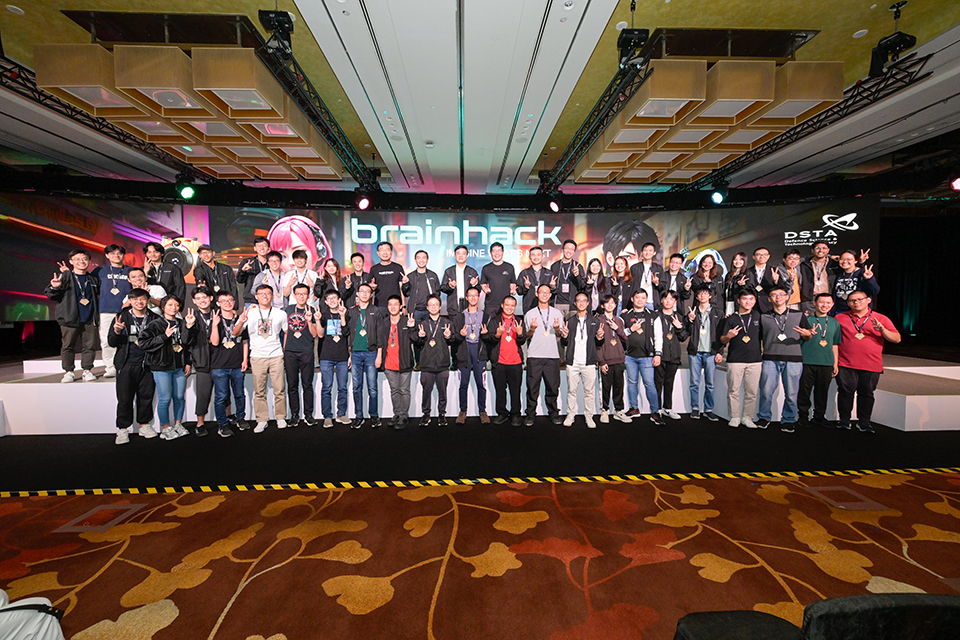
At the Cyber Defenders Discovery Camp (CDDC), students learnt about cybersecurity concepts such as network security, reverse engineering and cryptography through virtual workshops. Their learnings then culminated into a physical capture the flag competition where finalists competed to clinch the top spot.
A participant at CDDC, Ravin Nagpal, studying cybersecurity at Ngee Ann Polytechnic, shared: “My favourite part about BrainHack was participating in CDDC. Other students should definitely take part because it’s a different experience from other capture the flags. There were unique challenges that allows you to learn more while teaching you how to apply it in different scenarios.”
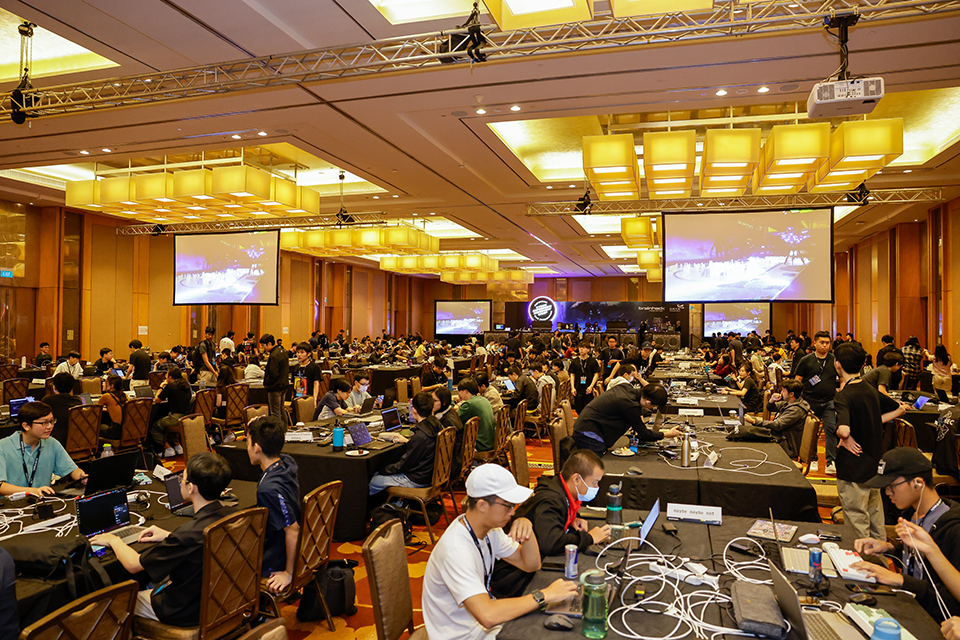
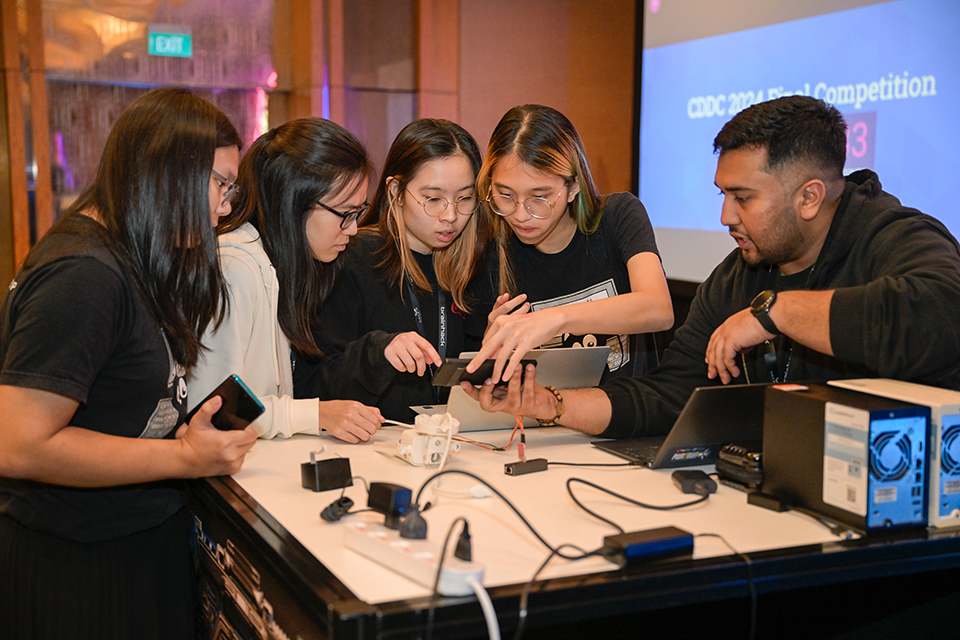
The Today I Learned – Artificial Intelligence (TIL-AI) camp brought students through a journey in AI and autonomous robotics. Students had the opportunity to train and deploy computer vision and natural language processing models to autonomously manoeuvre turrets through mission scenarios to neutralise air threats in a 3D airspace.
Zong Xian, an electronic engineering student from NTU and a participant at TIL-AI, shared: “As someone completely new to the world in AI model, it was an amazing learning experience that allowed us to have hands-on experience with the coding aspect of an AI project.”
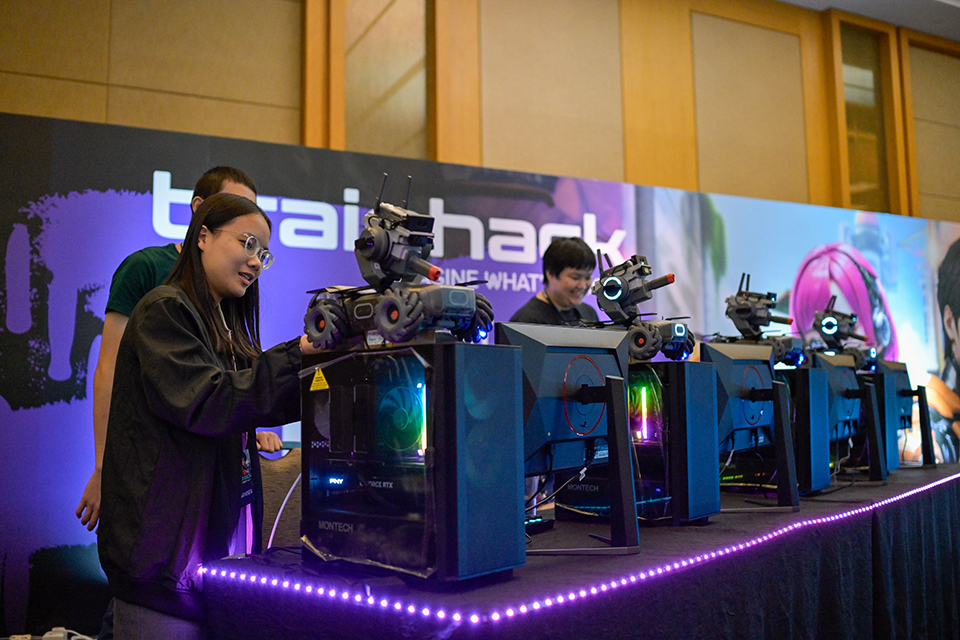
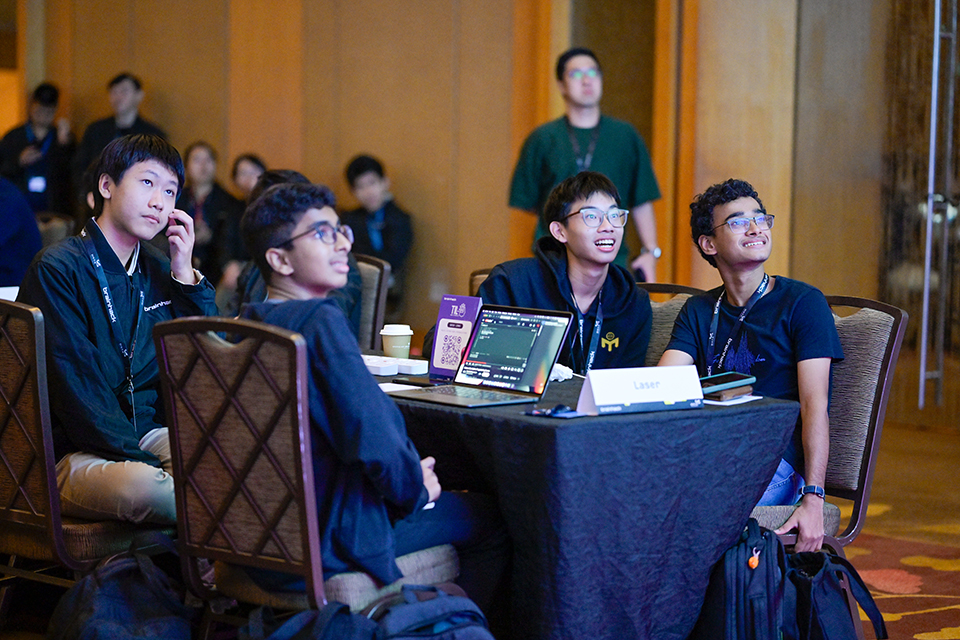
Blending theoretical knowledge and hands-on learning in programming, user interface/user experience (UI/UX) design, and mobile app development, the CODE_EXP camp saw teams design mobile apps to tackle climate change issues. Finalists got the chance to test and pitch their apps to a panel of judges.
Brandon Kim, a computer science and design undergraduate from SUTD and a participant at CODE_EXP, shared: “I had the opportunity to connect with so many inspiring individuals, particularly the amazing mentors from DSTA. Their guidance and insights were invaluable, and it was truly enlightening to experience DSTA’s innovation and see so many interesting projects from fellow participants.”
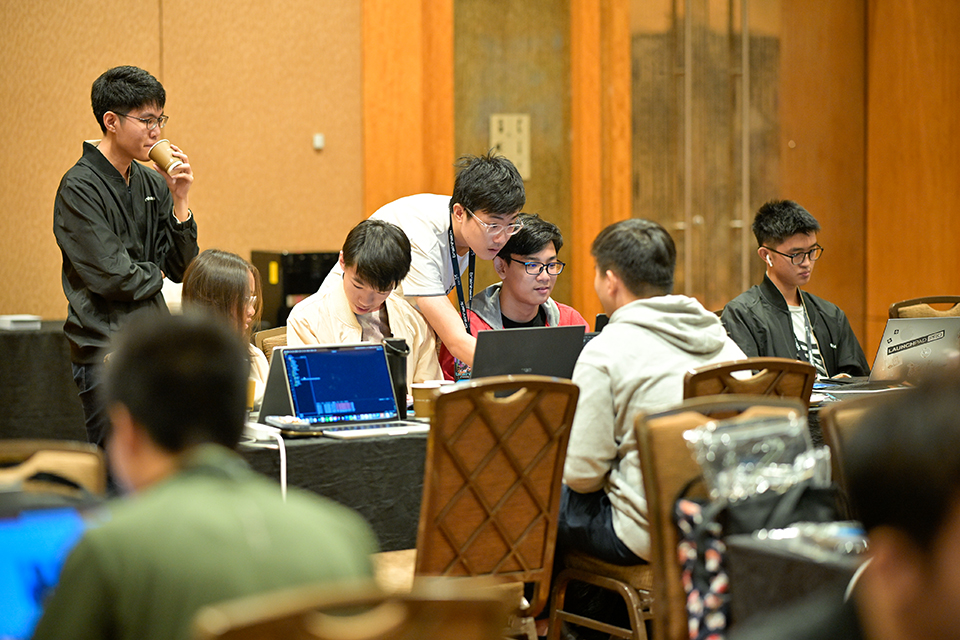
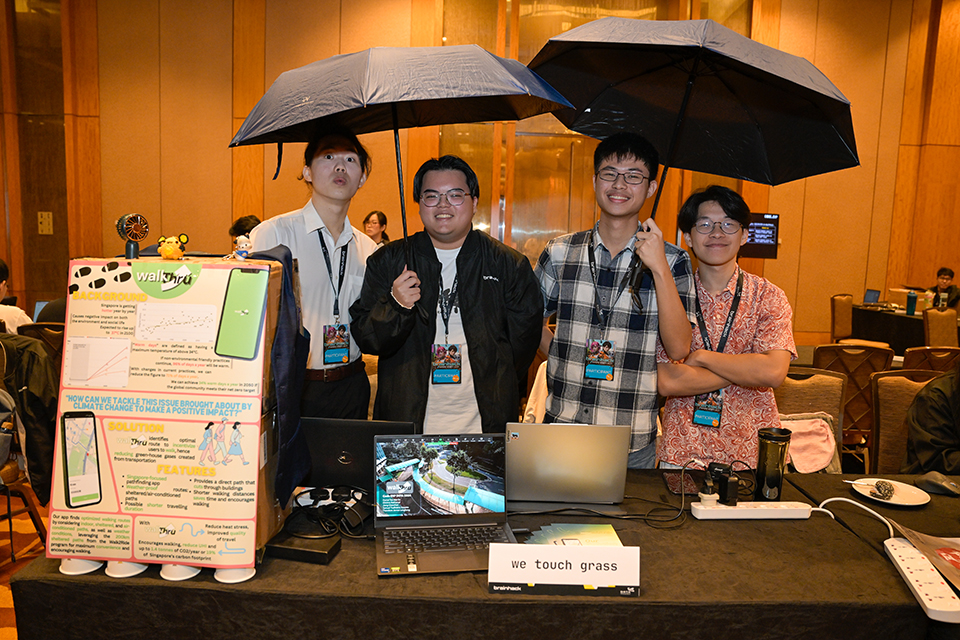
Students at SeeTrue participated in a hackathon, using open-source generative AI tools to learn about the real-world challenges encountered by fake news detectors. They also picked up useful skills on fake news detection technology.
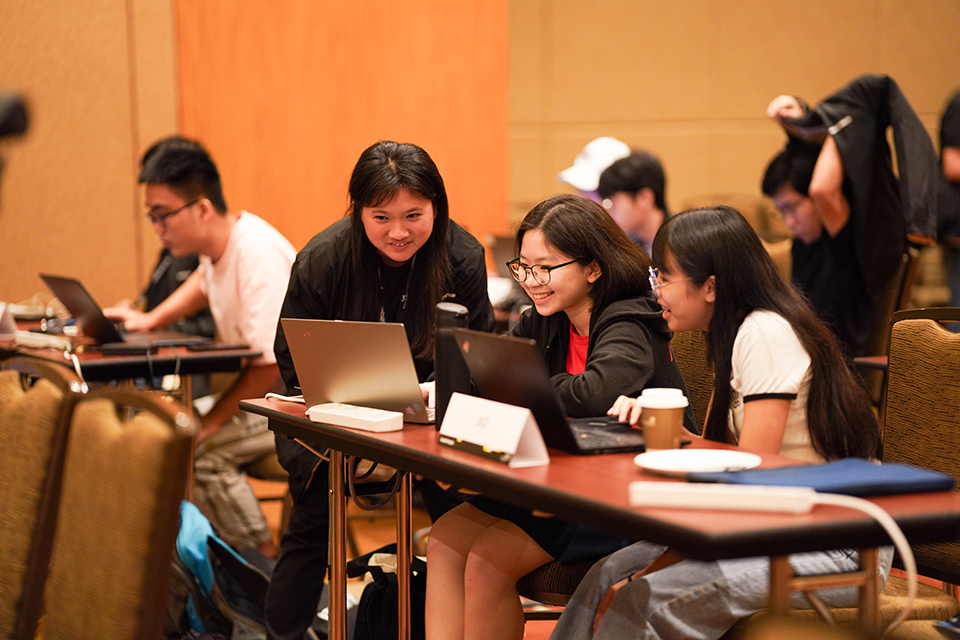
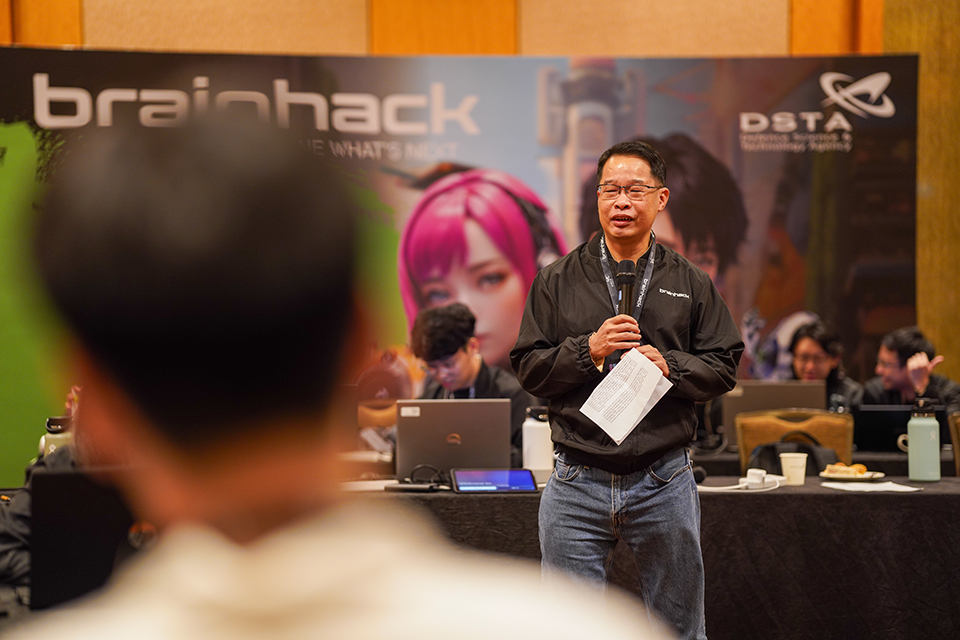
At the XRperience camp, students learnt to develop extended reality (XR) applications and got a hands-on experience with physical headsets. They developed solutions to address sustainability and defence problem statements and pitched their apps to a panel of judges.
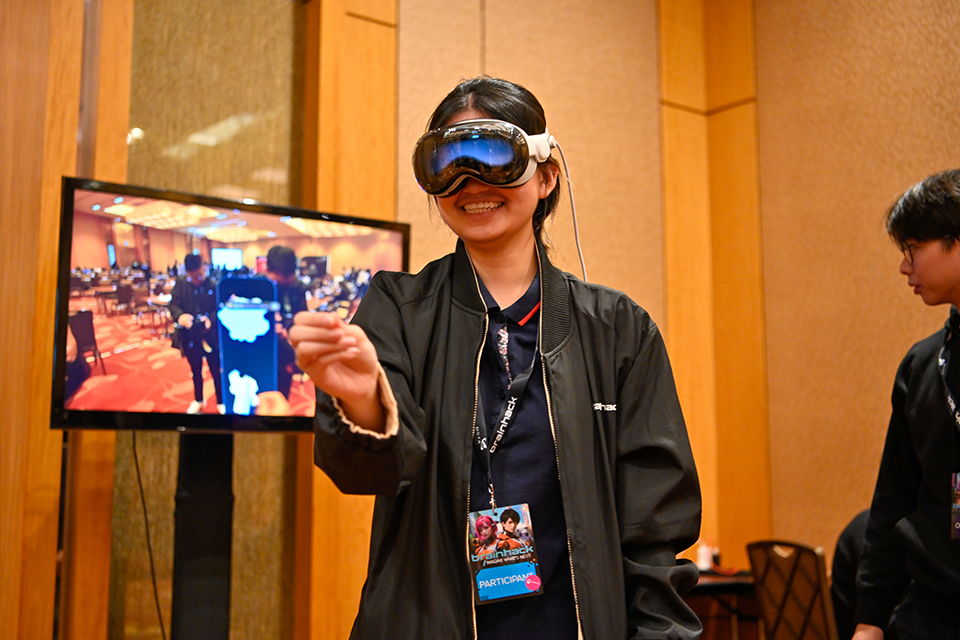
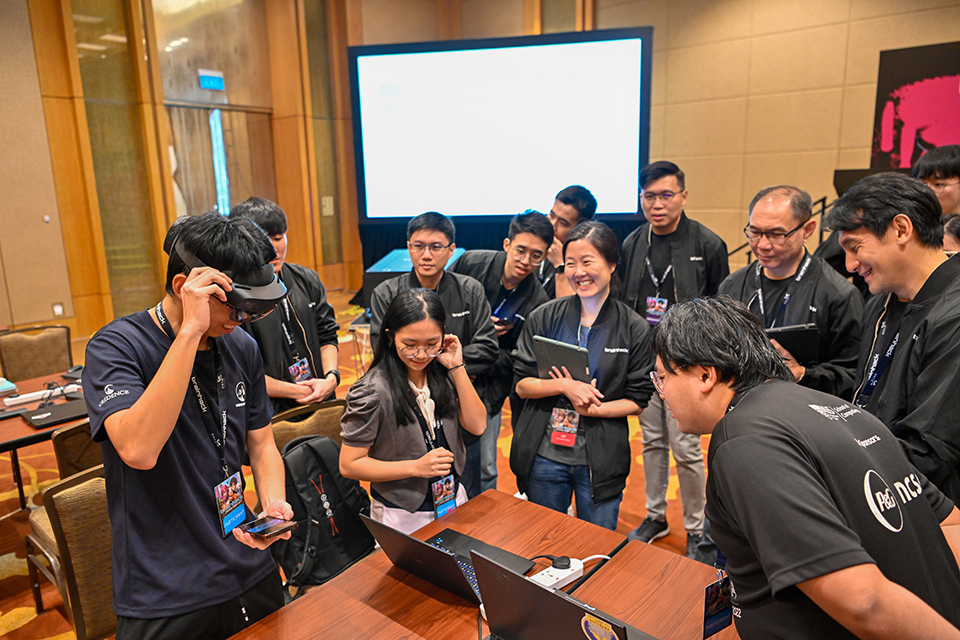
The SpaceCube camp taught students to exploit space data using Google Earth Engine. Finalists then competed in a hackathon to solve real-world problems on sustainability. To add to the excitement, they also had the rare opportunity of engaging with former Italian European Space Agency astronaut Brigadier General (BG) Roberto Vittori in a meet-and-greet session.
“Throughout this hackathon, I learnt a lot about space technology and data management. We used Google Earth Engine, a powerful tool for analysing and visualising geospatial data sets, to solve our problem statement,” said Jesmine Goh, a participant at SpaceCube, who studies Information Technology at Ngee Ann Polytechnic.
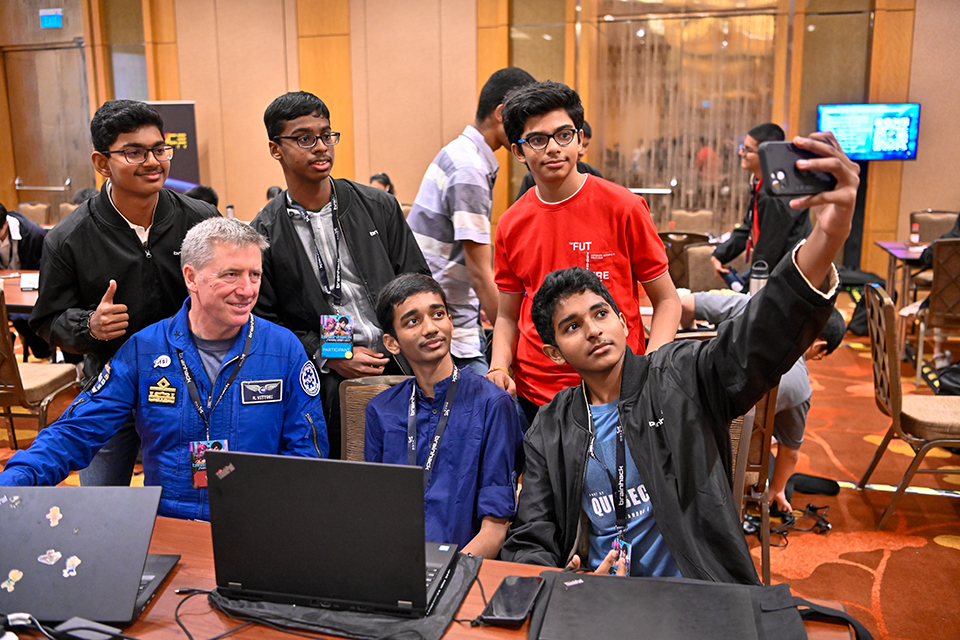
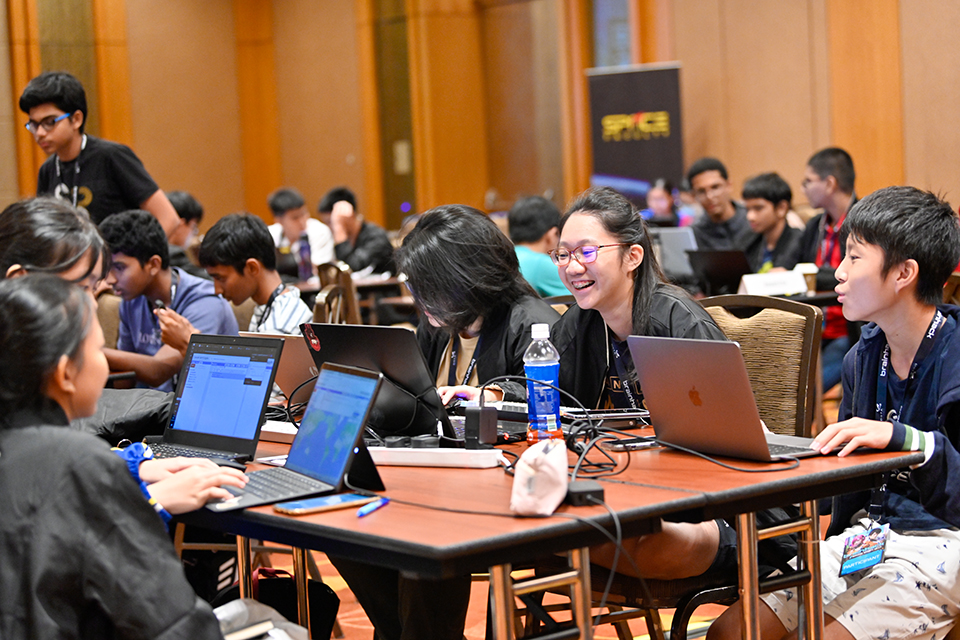
Alongside the various camps taking place, students were also invited to take part in an interactive tech showcase where they learnt more about how DSTA equips Singapore with the latest defence technology. From a light detection and ranging (LiDAR) obstacle course to drone mazes, students had fun while getting up close with various tech. They could also sign up for counter-drone workshops where they got hands-on with counter-drone systems, while learning how critical assets are protected from aerial threats.
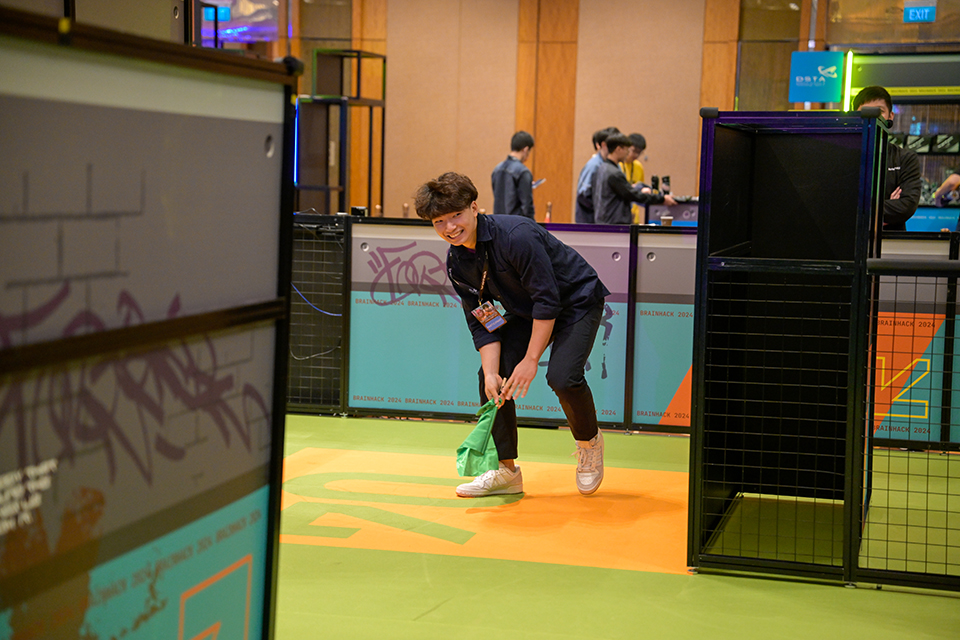
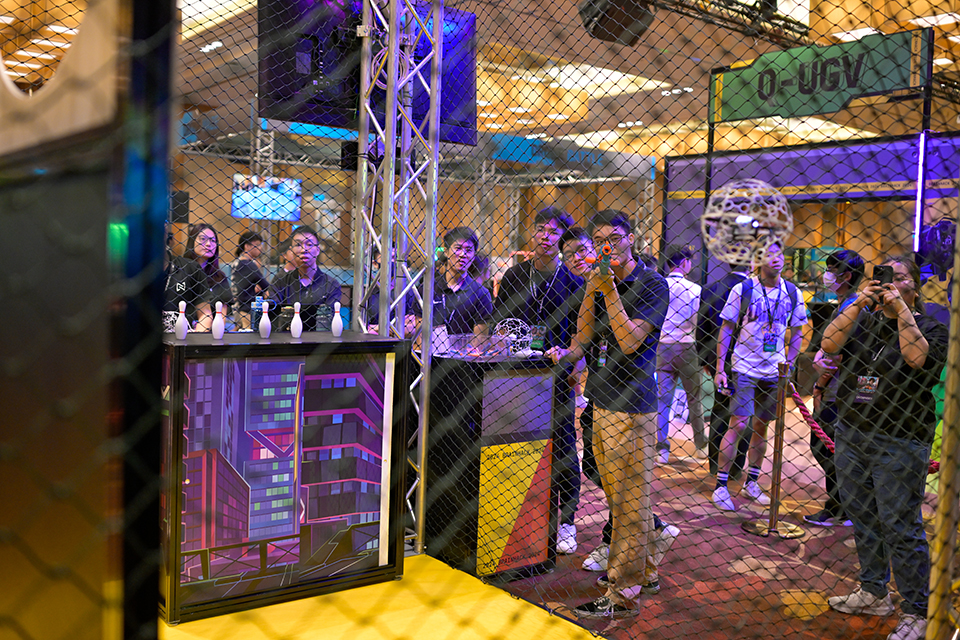
Hao Han Low, an incoming computer science undergrad at the University of New South Wales, shared: “I enjoyed going through the tech booths by DSTA, where I played around with the remote-controlled robot, going through a maze and collecting the flags while preventing detection, as well as neutralising targets in the seas through a simulation. The personnel at the booths were all-smiles and fun to talk with, which made the interactions enjoyable.”
This year’s BrainHack also saw an exciting lineup of speakers from the industry, government, and the academia. They gave insights into a wide variety of topics to inspire innovation and ignite new ideas. The sessions included talks on immersive technologies, industry sharing on generative AI, and insights into the ever-evolving cyber threat landscape.
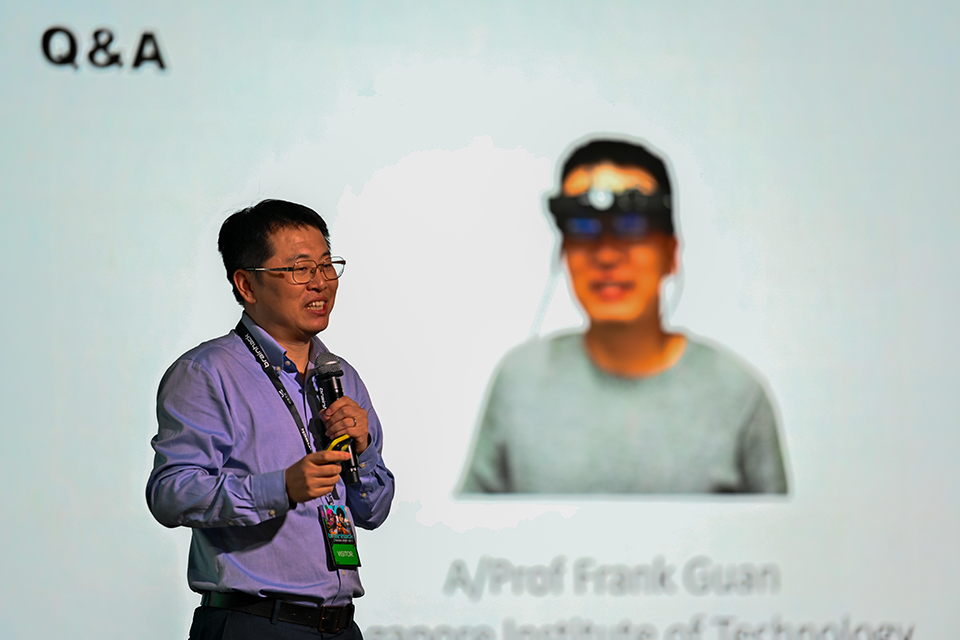
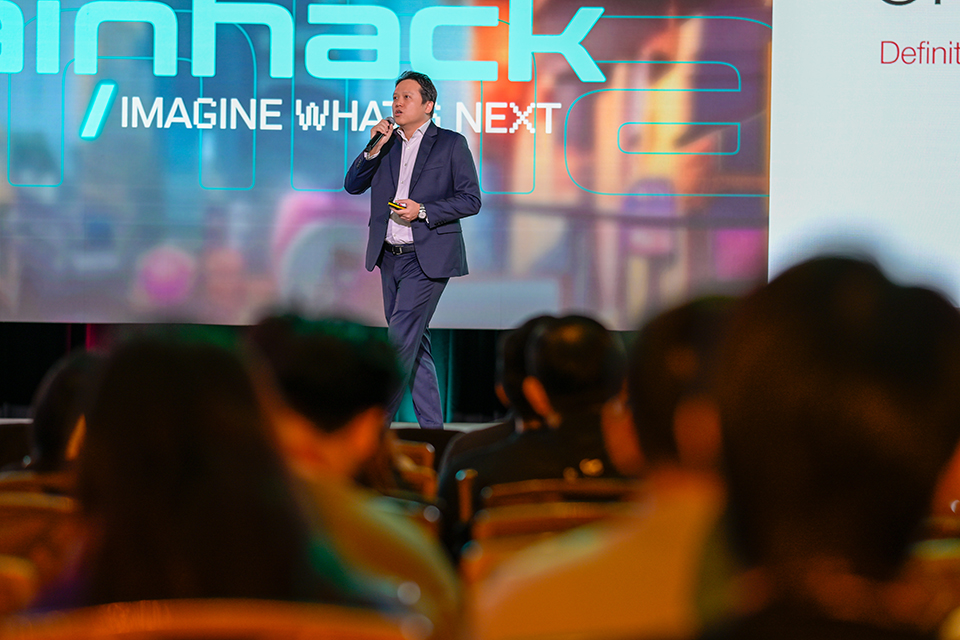
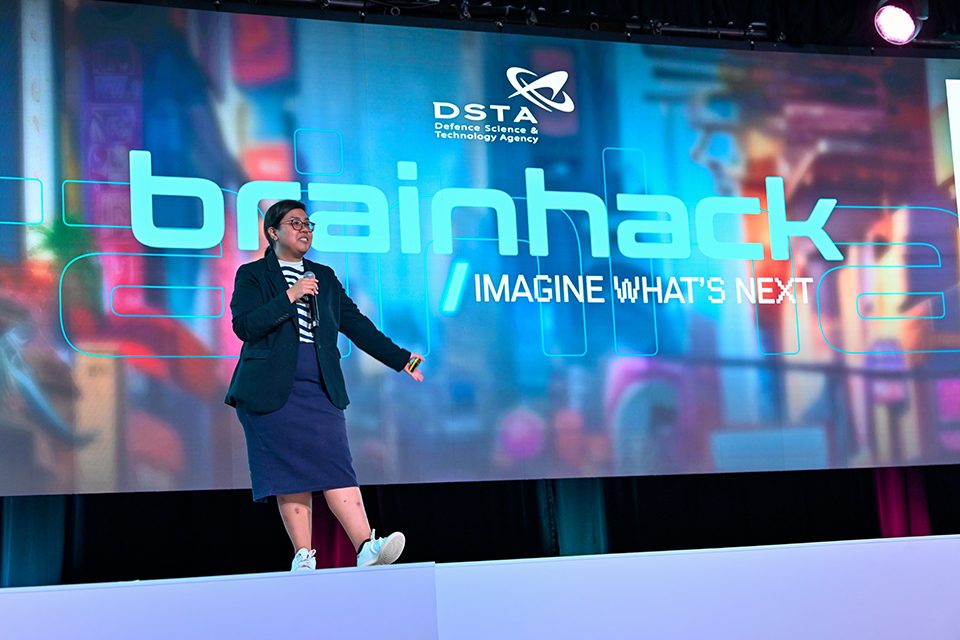
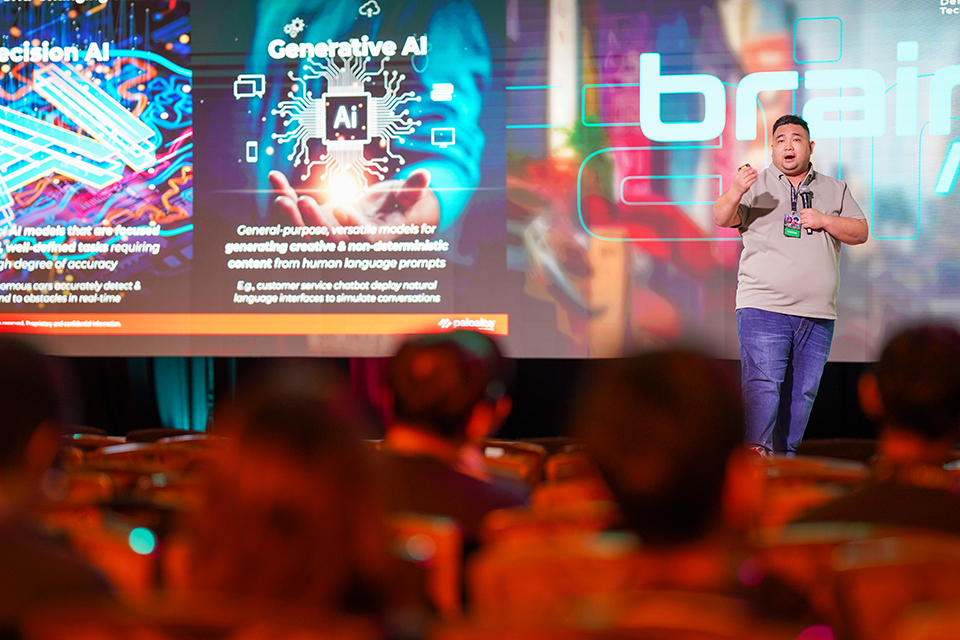
“During the event’s speaker sessions, we were able to catch up with Dr Frank Guan where he shared groundbreaking developments in the field of XR, from transforming snapshots into 3D models to integrating AI and using voice commands to manipulate AR objects from nothing. Truly some mind-blowing advancements,” shared Jiajun Chen, a software engineering student at SIT.
Look out for updates on BrainHack 2025 here, where you will see even more exciting activities lined up!
